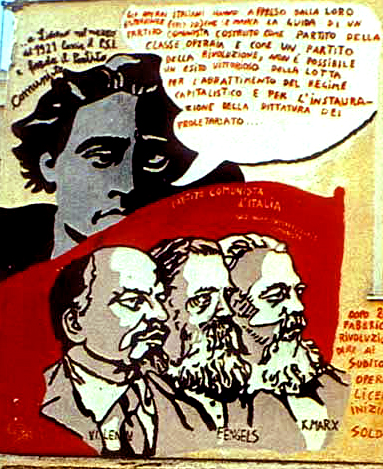Since its infancy, the pluralistic tendencies of the cultural studies project denied methodological and procedural consistency and resisted any disciplining of cultural studies as an attempt at authoritarian policing. Over the course of the 1980s, cultural studies continued to spread beyond the United Kingdom to Australia and the United States, initially, and the rest of the world soon thereafter. Movements towards the bridging of the longstanding divisions between fact and interpretation—between the social sciences and the humanities—under the sign of a principled approach to cultural democracy saw the Althusserian Marxism characteristic of earlier cultural studies scholarship expanded by way of a critical re/engagement of the works of Gramsci. This period of ideological critique allowed for a bold intellectual, political commitment to the re/conceptualization of culture as a site of class struggle, hegemonic formation, and structural signification. Particularly, the year 1986 saw major strides in this direction with the publication of monumental manuscripts by Stuart Hall, Ernesto Laclau, and Chantal Mouffe.
Articles by Sebastiaan Gorissen
Sebastiaan Gorissen is a PhD candidate at the University of Utah's Department of Communication. He studies marginalized audiences and popular digital media, with an emphasis on the contemporary production of alternative pornographies.
1988–The Crisis in Marxist Cultural Theory
1988 signaled a major year for cultural studies with the publication of several significant texts: The collection of essays Marxism and the Interpretation of Culture, edited by Cary Nelson and Lawrence Grossberg, the essay “Can the Subaltern Speak?” by Gayatri Spivak, and The Hard Road to Renewal, Stuart Hall’s book on Thatcherism. Despite these texts’ divergent purposes, themes, and theories, they can be productively read together for their unique contributions to Marxist cultural theory. In the decades preceding their publication, a resurgence in scholarship devoted to Marxism had emerged, as scholars grappled with both its internal issues as well as its increasingly apparent insufficiency to explain current social formations. As Grossberg and Nelson explain in the introduction to Marxism and the Interpretation of Culture, Marxism was “paradoxically at once undergoing a renaissance of activity and a crisis of definition.” In this essay, we elucidate how each text contributed to cultural studies and particularly highlight how each intervened on this redefinition of Marxism.

